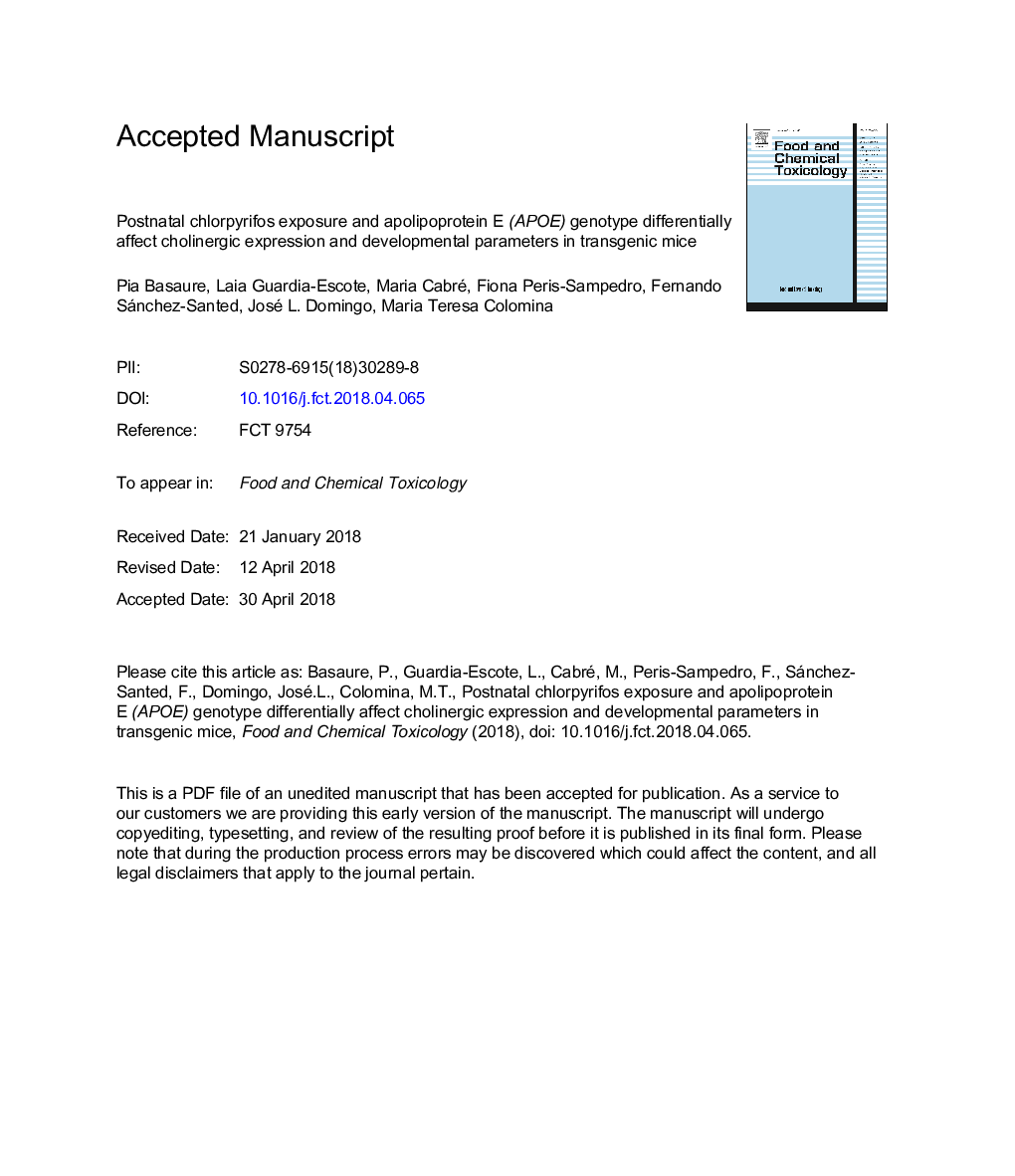| Article ID | Journal | Published Year | Pages | File Type |
|---|---|---|---|---|
| 8546935 | Food and Chemical Toxicology | 2018 | 47 Pages |
Abstract
Chlorpyrifos (CPF) is one of the most commonly used organophosphate pesticides in the world. Our previous results described that apolipoprotein E (APOE) polymorphisms are a source of individual differences in susceptibility to CPF. The aim of this study was to assess the physical and biochemical effects of postnatal exposure to CPF in the apoE targeted replacement mouse model. Mice were exposed to CPF at 0 or 1â¯mg/kg/day from postnatal day 10-15. Physical development, plasma and forebrain cholinesterase (ChE) activity and gene expression in liver and forebrain were evaluated. CPF exposure delays physical maturation and decreases the expression of choline acetyltransferase, α4-subunit and the α7 receptor. CPF decreases the expression of vesicular acetylcholine transporter (VAChT) mRNA in the forebrain only in apoE3 mice. The expression of paraoxonase-2 in the forebrain was also influenced by APOE genotype and CPF. Differences between genotypes were observed in litter size, ChE activity, expression of butyrylcholinesterase and paraoxonase-1 in liver and variants of acetylcholinesterase, VAChT and the α7 receptor in the forebrain. These results support that there are different vulnerabilities to postnatal CPF exposure according to the APOE polymorphism, which in turn affects the cholinergic system and defenses to oxidative stress.
Related Topics
Life Sciences
Agricultural and Biological Sciences
Food Science
Authors
Pia Basaure, Laia Guardia-Escote, Maria Cabré, Fiona Peris-Sampedro, Fernando Sánchez-Santed, José L. Domingo, Maria Teresa Colomina,
